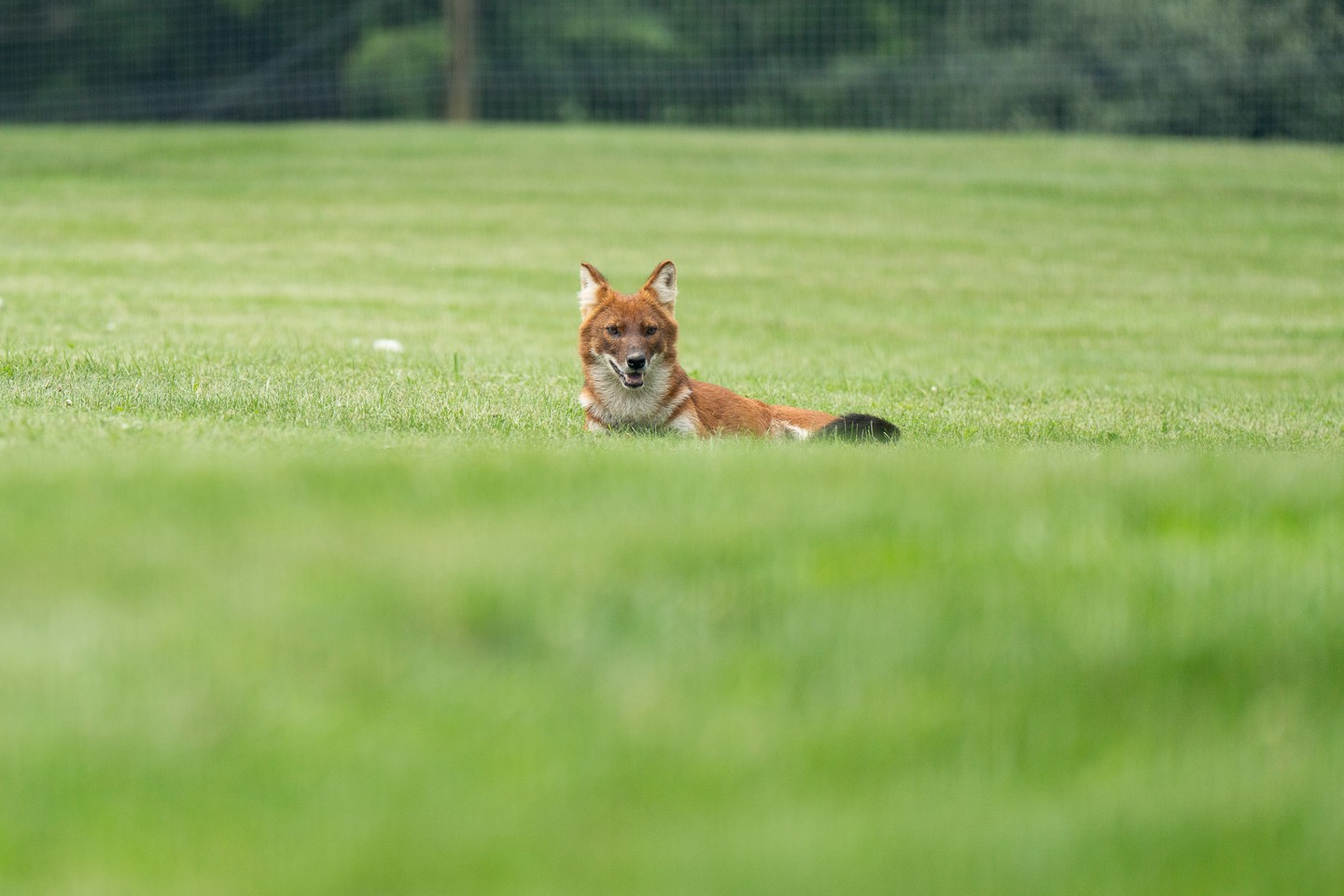- Introduction to Dholes: Understanding Their Importance and Characteristics
- Dhole Behavior and Social Structure
- Challenges and Threats Facing Dholes
- Conservation Efforts and the Role of Zoos
- Activities and Educational Opportunities on World Dhole Day
Dholes, scientifically known as Cuon alpinus, are remarkable canines native to Asia. These medium-sized predators are renowned for their social nature and complex communication. As a species, dholes are often overshadowed by their more famous relatives like wolves and foxes. However, their ecological significance and fascinating behaviors make them deserving of greater attention and conservation efforts.
Dholes are distinguished by their reddish coats, bushy tails, and slender frames. They thrive in diverse habitats ranging from dense forests to alpine regions. This adaptability underscores their ecological importance. Dholes are proficient hunters, often relying on their strong pack dynamics to hunt prey like deer and wild boar. Despite their capabilities, dholes remain vulnerable and face an array of threats in the wild, which places them on the IUCN Red List as endangered.
An understanding of dhole behavior is crucial for appreciating their role in ecosystems. They live in structured packs, typically comprising a dominant breeding pair and their offspring. This social setup fosters cooperation during hunting and child-rearing. Dholes communicate using a series of whistles, clicks, and growls, evident of a robust social bond. Such complex interactions not only facilitate survival but also strengthen their familial ties.
Despite their resilience, dholes are confronting significant challenges. Habitat loss due to deforestation, human encroachment, and competition with larger predators like tigers and leopards are key threats. Furthermore, diseases transmitted by domestic animals and a declining prey base exacerbate their plight. These issues highlight the urgent need for targeted conservation strategies.
Conservation initiatives are essential to halt the decline of dhole populations. Organizations like the Dhole Conservation Fund are spearheading efforts to preserve habitats and reduce human-wildlife conflict. Protected areas and wildlife corridors are pivotal for their safe passage and survival. Zoos are playing a significant role by engaging in captive breeding programs. These programs not only aim to increase numbers but also raise awareness about dhole conservation.
World Dhole Day serves as an excellent platform to highlight the importance of these canines. Set at the Mid-sized Carnivore Center, this event on May 24th promotes interaction and education. From enrichment activities to educational tables, attendees can engage with experts and learn more about dholes. Free items courtesy of the Dhole Conservation Fund serve as reminders of the event’s objectives.
Through this event, visitors will have the opportunity to understand the ecological role of dholes and gain insights into conservation practices. Enrichment activities are designed to stimulate the natural behaviors of captive dholes, enhancing both their welfare and public education. For zoo enthusiasts and wildlife advocates, World Dhole Day offers an engaging experience to learn about these incredible canines and support their conservation.
*****
Source Description
We’re “dhole-ing” out a lot of love for one of the coolest canines in the world! 🧡
Join us at our Mid-sized Carnivore Center on Saturday, May 24th for World Dhole Day! Dholes are medium-sized canine from Asia and are very rare both in zoos and in the wild. In celebration, we will be doing enrichment for our carnivores and have an education table where you can learn more about dholes and receive some free items, courtesy of the @dholeconservationfund!


